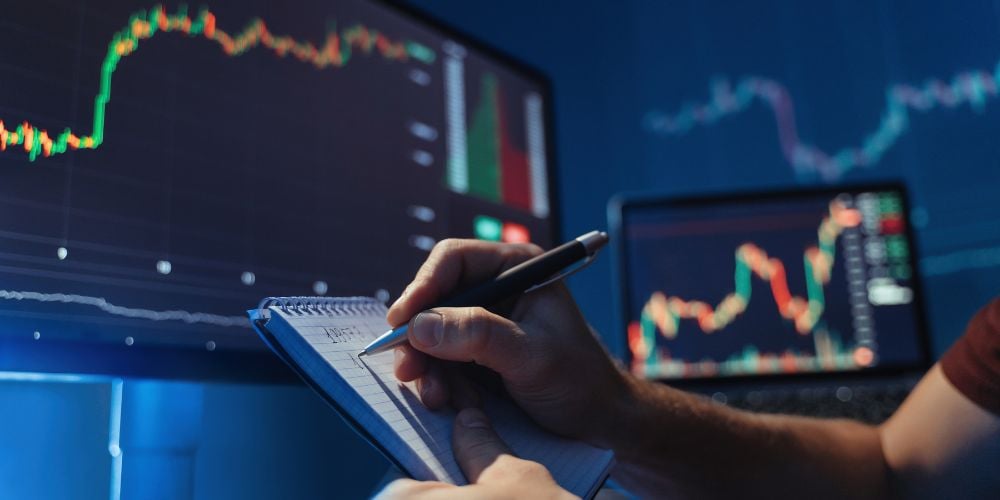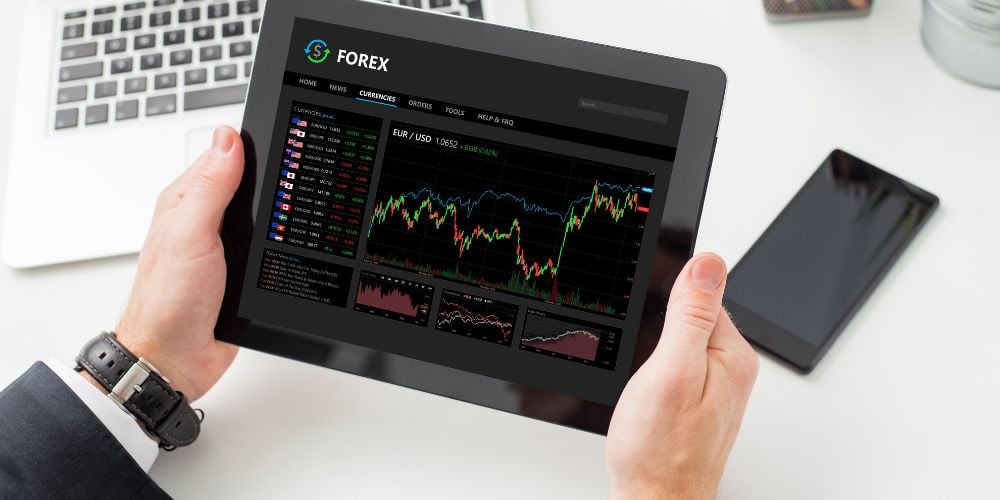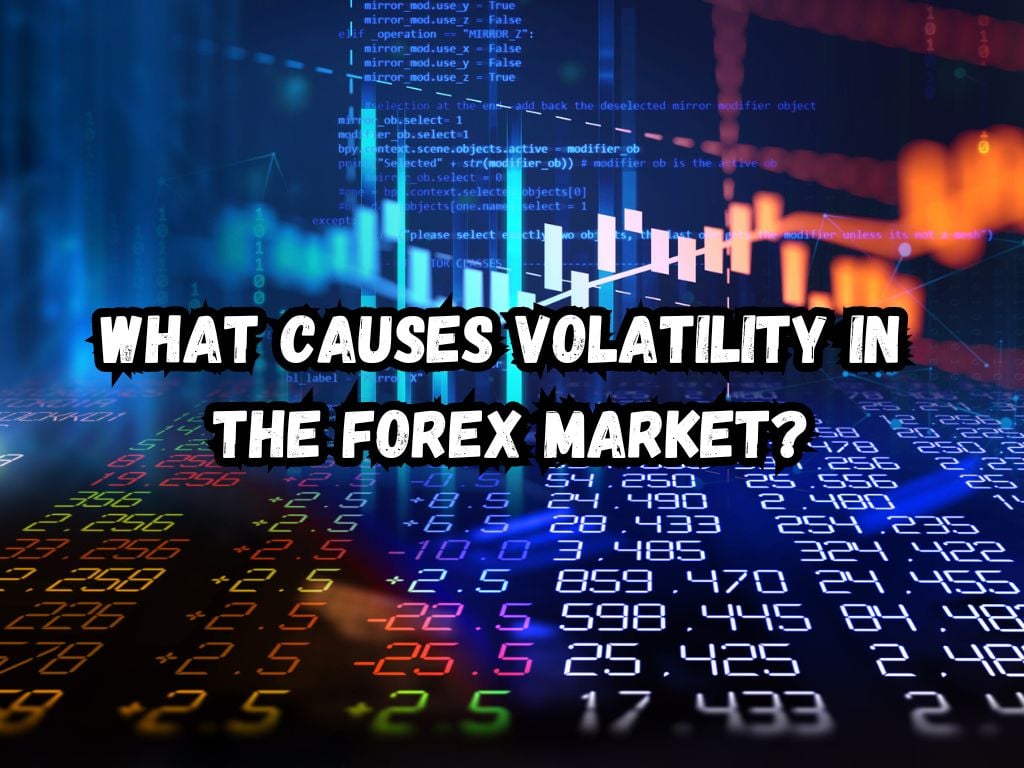Navigating the tumultuous waters of the Forex market requires a strong grasp of the factors that cause price fluctuations. Volatility in Forex signifies price movements and the extent of these shifts over a specific time.
For traders looking to strategize effectively, understanding what drives these changes is paramount.
This article delves into the multitude of forces that influence Forex market volatility and provides insights for trading within such an unpredictable environment.
What Causes Volatility in the Forex Market?
Volatility is a measure of the rate at which the price of a currency pair moves up or down. When the price shifts rapidly in a short period, the market is considered highly volatile.
Traders use several metrics to gauge this, including standard deviation and average true range (ATR). These tools help them identify the patterns that are part of Forex’s volatile nature.
Volatility is not just a gauge of risk but also a window to opportunities. Traders can categorize it as historical, which looks at past price fluctuations, or implied, which is the market’s prediction of future volatility.
The success of trading strategies often hinges on anticipating and understanding the types of volatility in play.

Fundamental Factors Influencing Forex Volatility
Several key fundamental factors weigh on the volatility of Forex markets. These include a range of economic indicators that traders monitor closely as they hint at the strength of a country’s economy.
Interest rates are perhaps the most influential amongst these indicators. Central banks set these rates, and they affect currency values substantially. When a country raises its interest rates, its currency often strengthens due to the higher returns on assets denominated in that currency. Conversely, slashes in interest rates can weaken a currency.
Inflation rates, too, shape Forex volatility. Low inflation boosts the value of a currency, whereas high inflation can erode its value. Employment data and Gross Domestic Product (GDP) reports also trigger volatility, as they provide insights into economic health.
Beyond economics, political events can destabilize or propel currencies. Elections, regime changes, and geopolitical tensions can bring uncertainty, which in turn spurs volatility. Economic sanctions imposed by or against a country also unsettle Forex markets.
Market sentiment cannot be ignored. It defines the tendency of market participants to trade in a particular direction.
When traders feel optimistic, they may favor riskier assets leading to higher volatility in pursuit of gains. Conversely, during turbulent times, a shift to safe-haven currencies can be observed.
Technical Factors Causing Forex Volatility
From a technical standpoint, order flows can exert substantial influence. Large orders from banks or financial institutions can shift prices significantly.
Furthermore, an accumulation of stop-loss orders at certain price levels can lead to sudden and sharp moves once triggered. A cascade of these orders can result in rapid increases in volatility.
Currency pairs with low liquidity inherently face higher volatility as even small trades can lead to large swings in price.
Additionally, when traders in different time zones execute cross-border trades, it can result in abrupt price changes, further highlighting the role of technical factors in Forex volatility.
Traders can navigate Forex volatility with various tools and strategies. Technical analysis indicators such as the Average True Range (ATR) or Bollinger Bands help traders understand market volatility patterns.
However, the true power lies in incorporating sound risk management strategies.
Setting appropriate stop-loss orders and not over-leveraging positions protects traders from extreme adverse movements. Trade diversification is another crucial strategy – it helps spread risk across different currency pairs and trade setups.
Moreover, staying informed about upcoming news and economic data releases is vital because these often trigger volatility.
How to Profit from Forex Volatility
Despite its unpredictability, Forex volatility presents opportunities for profit. Short-term traders engage in scalping or day trading, thriving on quick, small gains from the market’s minute-to-minute fluctuations.
Conversely, long-term traders might prefer swing trading or the carry trade strategy, leveraging interest rate differentials between currencies over a more extended period.
Regardless of the time frame, a solid trading plan is the backbone of success. This should define entry and exit points, set out risk management rules, and be adaptable to market conditions.
Traders who understand and respect the power of volatility are often those who profit from it.

Frequently Asked Questions
What is considered high volatility in Forex?
High volatility is characterized by rapid and significant price movements within a short time frame in the Forex market.
How can traders protect themselves against high volatility?
Traders can protect themselves by using risk management strategies, setting stop-loss orders, and diversifying their trade positions.
Why do some traders prefer volatile markets?
Some traders prefer volatile markets as they present opportunities for making profits from significant price movements.
Can political events predictably affect Forex volatility?
Political events can lead to predictable outcomes if their implications on the economy are clear, although the exact impact on currency values can still be uncertain.
In conclusion, while writing about Forex market volatility, the content should convey a detailed and practical understanding of the topic.
By adhering to the guidelines above, the resulting article will serve as an informative resource for anyone looking to master their approach to Forex trading.
Conclusion
Volatility is an inherent part of the Forex market. The factors contributing to it are numerous, encompassing economic, political, and technical elements.
By acknowledging and learning to read these signals, traders can maneuver through volatile waters with greater confidence and capability.
By keeping a keen eye on financial news and employing robust risk management practices, traders can transform volatility from a formidable foe into a valuable ally.
With the right knowledge and tools, the often daunting Forex market volatility becomes a landscape of potential profit and growth for the prepared trader.


 Tags:
Tags:










